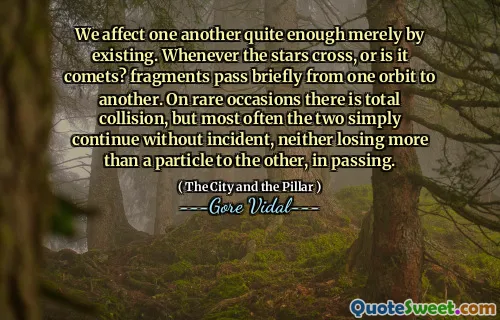And yet I am happy. Yes, happy. I swear. I swear that I am happy...What does it matter that I am a bit cheap, a bit foul, and that no one appreciates all the remarkable things about me-my fantasy, my erudition, my literary gift…I am happy that I can gaze at myself, for any man is absorbing-yes, really absorbing! ... I am happy-yes, happy!
In "The Eye," Vladimir Nabokov explores the complex interplay between self-perception and happiness. The protagonist reflects on his feelings of contentment despite acknowledging personal flaws and a lack of recognition from others for his unique qualities. This internal conflict illustrates a depth of self-awareness, where happiness seems to arise from one's ability to appreciate oneself rather than rely on external validation.
The assertion of happiness, even in the face of imperfection, highlights a theme of self-acceptance. The character's assertion, "I am happy," serves as a powerful declaration of individuality. Through this introspection, Nabokov suggests that true happiness can stem from embracing one’s identity, fantasies, and literary talents, even if they go unnoticed by the world.
